6.3 Over-the-Counter Drugs
Prescription Drugs and Over-the-Counter (OTC) Drugs: Questions and Answers
What is the difference between prescription drugs and OTC drugs? A drug is a substance intended for use in the diagnosis, cure, mitigation, treatment, or prevention of disease. Here are the main differences between OTC drugs and prescription drugs.
Prescription Drugs
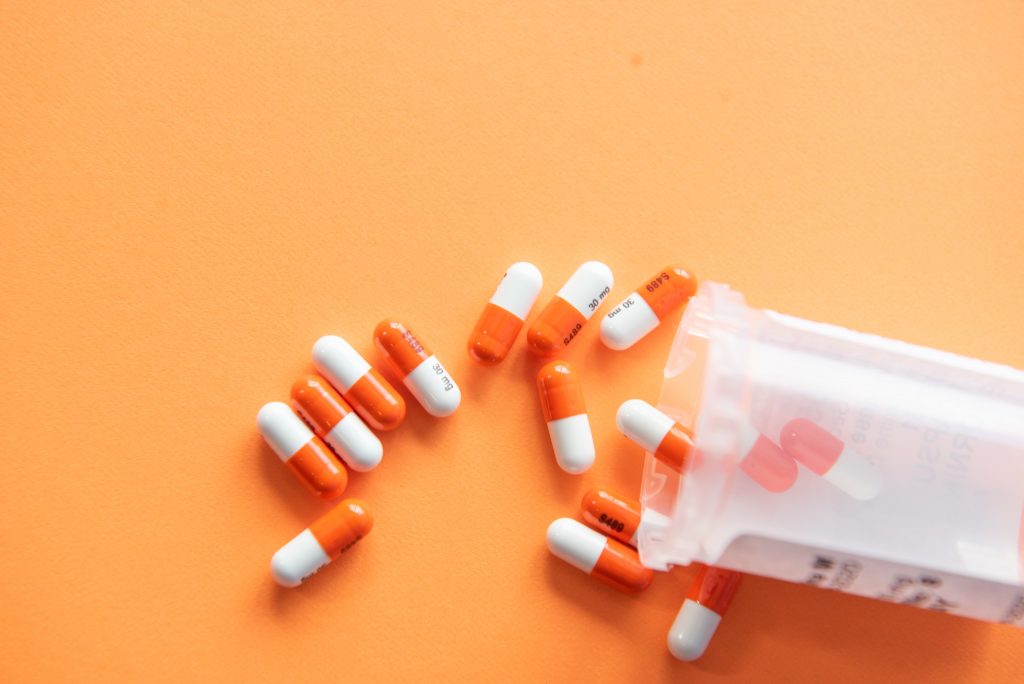
- Prescribed by a doctor
- Bought at a pharmacy
- Prescribed for and intended to be used by one person
- Regulated by Health Canada through the Drug Scheduling in Canada process. This is the formal step a drug sponsor takes to ask that Health Canada consider approving a new drug for marketing in Canada.
Over-the-Counter (OTC) Drugs
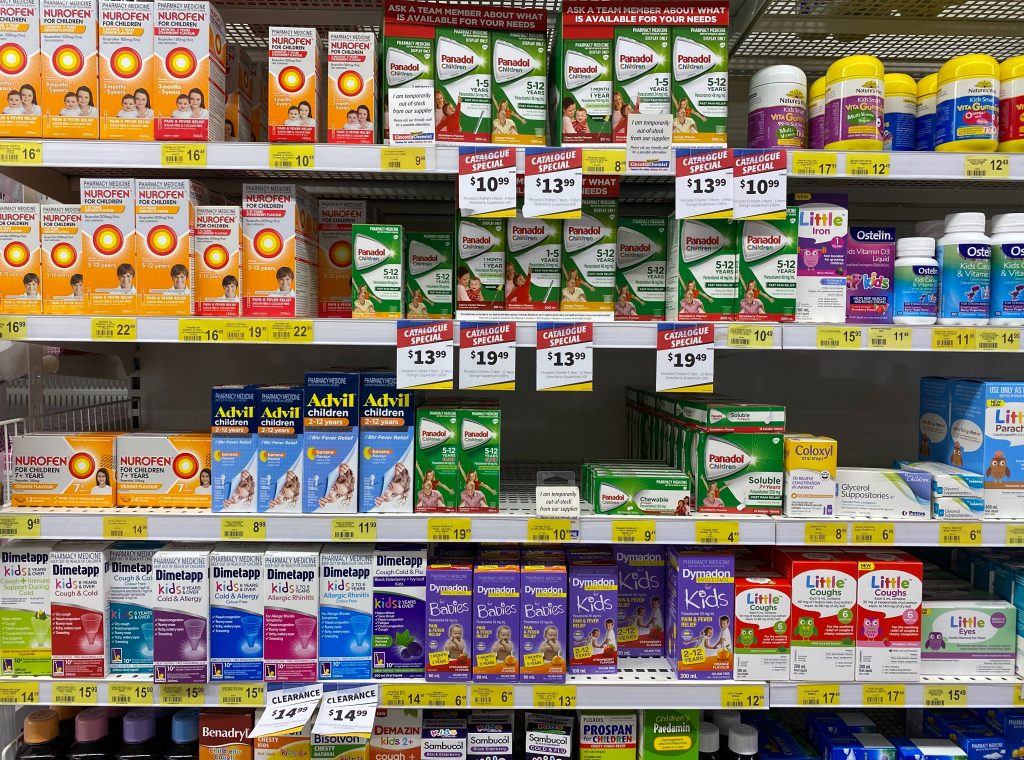
- Drugs that do NOT require a doctor’s prescription
- Bought off-the-shelf in stores
- Regulated by Health Canada through OTC
- investigate
- take corrective actionNon-prescription drugs require a valid Drug Identification Number (DIN) to be sold in Canada. On a product label, this number indicates the drug has met our requirements for:
- safety
- quality
- effectiveness
The label lists the drug’s ingredients, so Canadians can avoid those that may cause concern. Canadian companies that manufacture, package, label and import non-prescription drugs must:
- be licensed for these activities
- provide the necessary documents and evidence
A licence is provided after a satisfactory inspection. If a health and safety problem is reported after a drug is on the market, we will:
Over-the-Counter Medicines
In Canada, we have Guidance Document: Drug Facts Table for Non-prescription Drugs – Health Canada
Important tips for using over-the-counter medicines:
-
- Always follow the printed directions and warnings. Talk to your healthcare provider before starting a new medicine.
- Know what you are taking. Look at the list of ingredients and choose products that have fewer items listed.
- All medicines become less effective over time and should be replaced. Check the expiration date before using any product.
- Store medicines in a cool, dry area. Keep all medicines out of the reach of children.
- Women who are pregnant or breastfeeding should talk to their provider before taking any new medicine.
- Medicines affect children and older adults differently. People in these age groups should take special care when taking over-the-counter medicines.
Check with your provider before taking an over-the-counter medicine if:
- Your symptoms are very bad.
- You are not sure what is wrong with you.
- You have a long-term medical problem or you are taking prescription medicines.
Aches, Pains, and Headaches
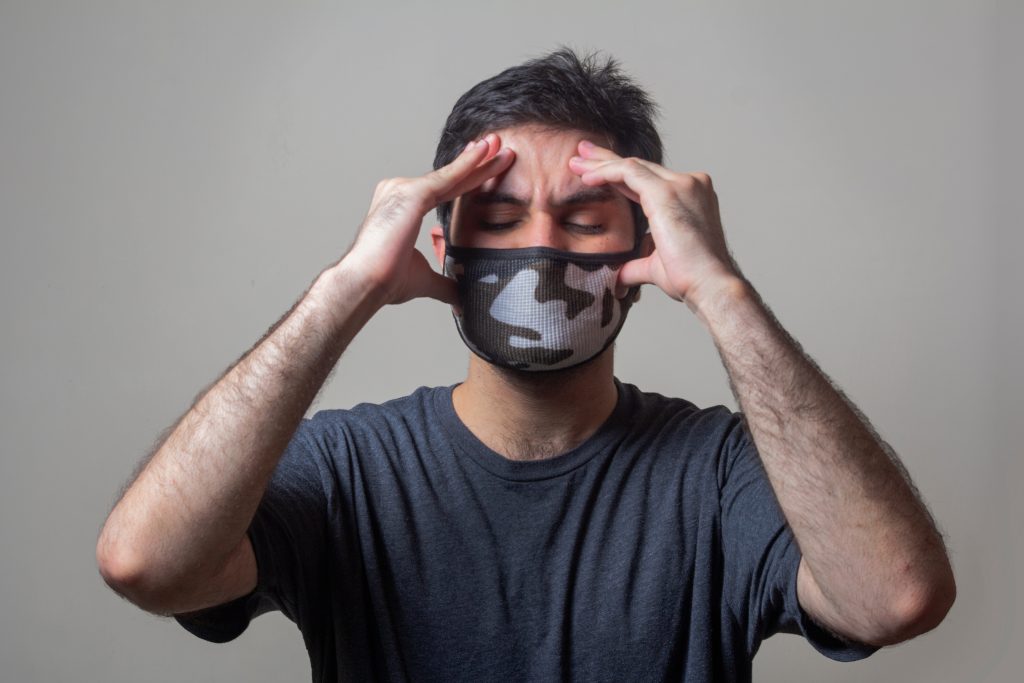
Over-the-counter pain medicines can help with a headache, arthritis pain, sprains, and other minor joint and muscle problems.
- Acetaminophen — Try this medicine first for your pain. DO NOT take more than 3 grams (3,000 mg) on any one day. Large amounts can harm your liver. Remember that 3 grams are about the same as 6 extra-strength pills or 9 regular pills.
- Nonsteroidal anti-inflammatory drugs (NSAIDs) — You can buy some NSAIDs, such as ibuprofen and naproxen, without a prescription.
Both of these medicines can have serious side effects if you take them in high doses or for a long time. Tell your provider if you are taking these medicines many times a week. You may need to be checked for side effects.
Fever
Acetaminophen (Tylenol) and ibuprofen (Advil, Motrin) help reduce fever in children and adults.
- Take acetaminophen every 4 to 6 hours.
- Take ibuprofen every 6 to 8 hours. DO NOT use ibuprofen in children younger than 6 months.
- Know how much you or your child weighs before giving these medicines.
Aspirin works very well for treating fever in adults. DO NOT give aspirin to a child unless your child’s provider tells you it is OK.
Cold, Sore Throat, Cough

Cold medicines can treat symptoms to make you feel better, but they do not shorten a cold. Taking zinc supplements within 24 hours of the start of a cold may reduce the symptoms and duration of a cold. NOTE: Talk to your provider before giving your child any type of over-the-counter cold medicine, even if it is labeled for children.
Cough medicines:
- Guaifenesin — helps break up mucus. Drink lots of fluids if you take this medicine.
- Menthol throat lozenges — Soothe “tickle” in the throat (Halls, Robitussin, and Vicks).
- Liquid cough medicines with dextromethorphan — Suppress the urge to cough (Benylin, Delsym, Robitussin DM, Simply Cough, Vicks 44, and store brands).
Decongestants:
- Decongestants help clear a runny nose and relieve postnasal drip.
- Decongestant nasal sprays may work more quickly, but they can have a rebound effect if you use them for more than 3 to 5 days. Your symptoms may get worse if you keep using these sprays.
- Check with your provider before taking decongestants if you have high blood pressure or prostate problems.
- Oral decongestants: Pseudoephedrine (Contac Non-Drowsy, Sudafed, and store brands); phenylephrine (Sudafed PE and store brands).
- Decongestant nasal sprays: Oxymetazoline (Afrin, Neo-Synephrine Nighttime, Sinex Spray); phenylephrine (Neo-Synephrine, Sinex Capsules).
Sore throat medicines:
- Sprays to numb pain — Dyclonine (Cepacol); phenol (Chloraseptic)
- Painkillers — Acetaminophen (Tylenol), ibuprofen (Advil, Motrin), naproxen (Aleve)
- Hard candies that coat throat — Sucking on candy or throat lozenges can be soothing. Be careful in young children because of the choking risk
Allergies
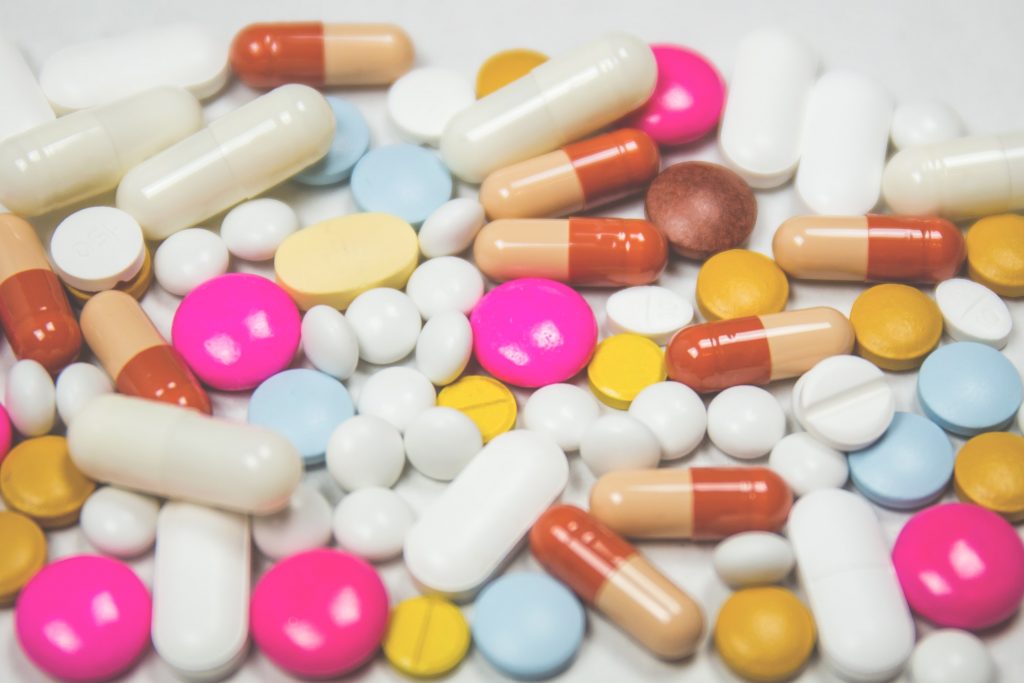
Antihistamine pills and liquids work well for treating allergy symptoms.
- Antihistamines that may cause sleepiness — Diphenhydramine (Benadryl); chlorpheniramine (Chlor-Trimeton); brompheniramine (Dimetapp), or clemastine (Tavist)
- Antihistamines that cause little or no sleepiness — Loratadine (Alavert, Claritin, Dimetapp ND); fexofenadine (Allegra); cetirizine (Zyrtec)
Talk to your provider before giving medicines that cause sleepiness in a child, because they can affect learning. They can also affect alertness in adults. You can also try:
- Eye drops — Soothe or moisten the eyes
- Preventive nasal spray — Cromolyn sodium (Nasalcrom), fluticasone (Flonase)
Stomach Upset
Medicines for diarrhea:
- Antidiarrhea medicines such as loperamide (Imodium) — These medicines slow down the action of the intestine and reduce the number of bowel movements. Talk to your provider before taking them because they can worsen diarrhea caused by infection.
- Medicines that contain bismuth — May be taken for mild diarrhea (Kaopectate, Pepto-Bismol)
- Rehydration fluids — May be used for moderate and severe diarrhea (Analytes or Pedialyte)
Medicines for nausea and vomiting:
- Liquids and pills for stomach upset — May help with mild nausea and vomiting (Emetrol; Pepto-Bismol)
- Rehydration fluids — May be used to replace fluids from vomiting (Enfalyte or Pedialyte)
- Medicines for motion sickness — Dimenhydrinate (Dramamine); meclizine (Bonine, Antivert, Postafen, and Sea Legs)
Skin Rashes and Itching
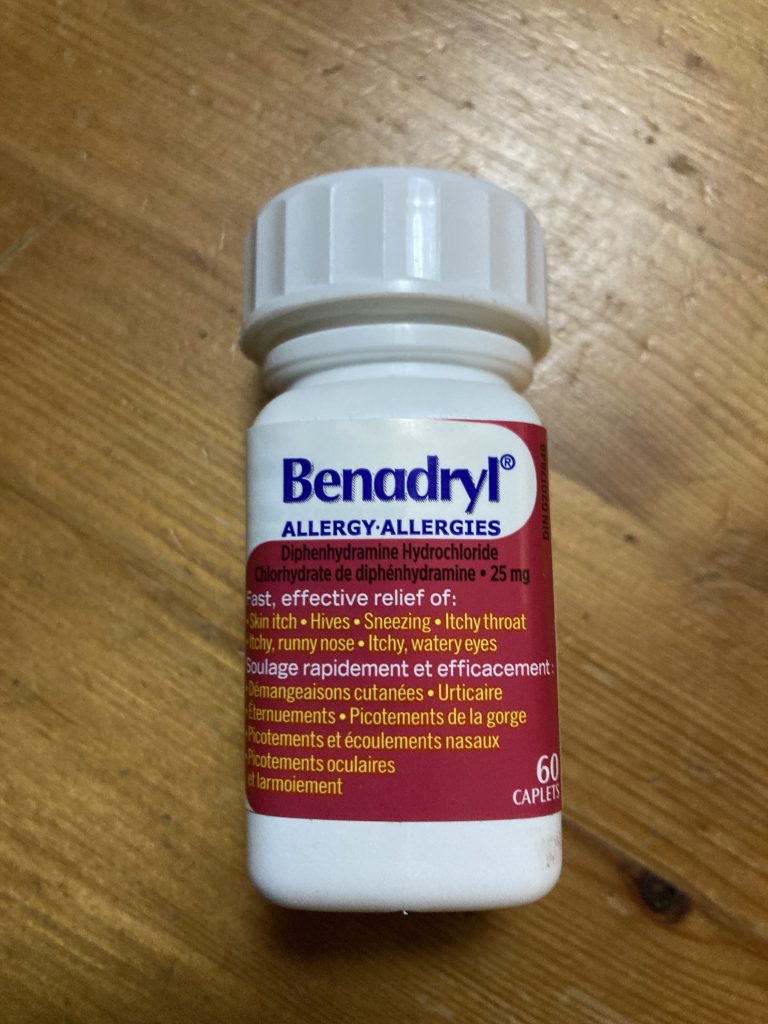
- Antihistamines are taken by mouth — May help with itching or if you have allergies
- Hydrocortisone cream — May help with mild rashes (Cortaid, Cortizone 10)
- Antifungal creams and ointments — May help with diaper rashes and rashes caused by yeast (nystatin, miconazole, clotrimazole, and ketoconazole)
Taking Acetaminophen Safely. by U.S. Food and Drug Administration. “Taking Acetaminophen Safely” is the latest installment of the Medicines in My Home series. It provides background about acetaminophen, a common over-the-counter pain reliever and fever reducer, and the many different types of medications that might contain acetaminophen; the danger of taking more acetaminophen than directed; how to learn if acetaminophen is in a medicine by looking at the Drug Facts label; and how to take acetaminophen safely. It also encourages consumers to contact their healthcare professionals if they have questions or concerns.
Transcript
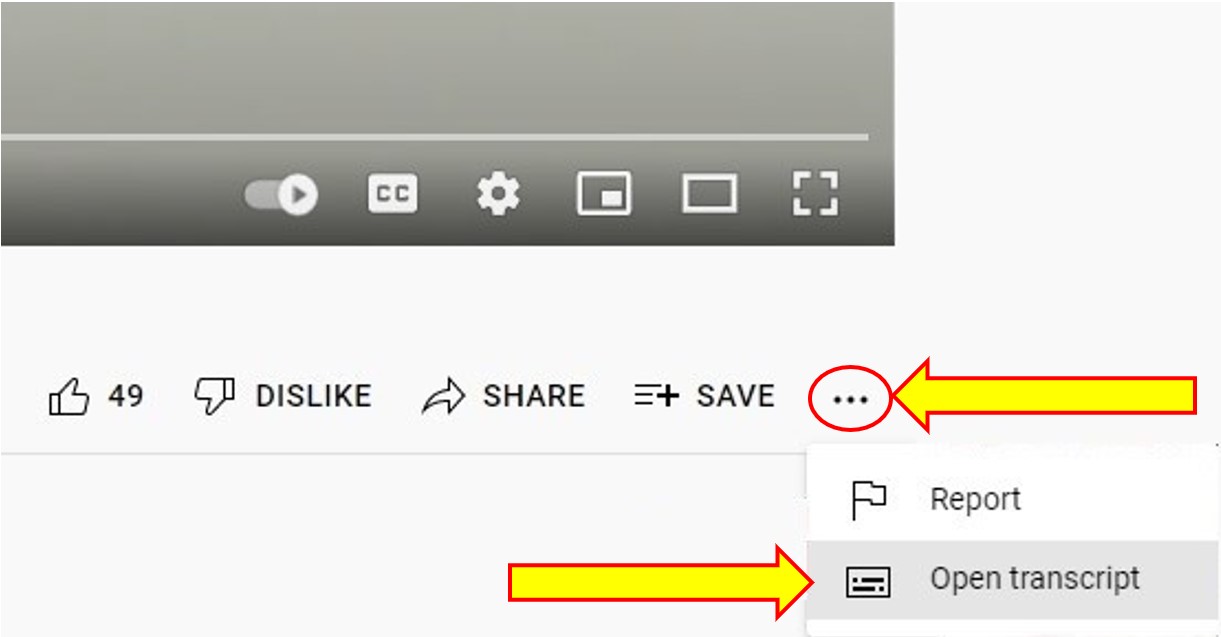
Attributions:
Drugs, Health & Behavior by Jacqueline Schwab and Denise Salters is licensed under a Creative Commons Attribution-NonCommercial-ShareAlike 4.0 International License, with Canadian Content added.
References
U.S.F.D. (2013, January 9). Taking Acetaminophen Safely [Video]. Youtube. https://www.youtube.com/watch?v=cBDOx85Ywck&t=5s

